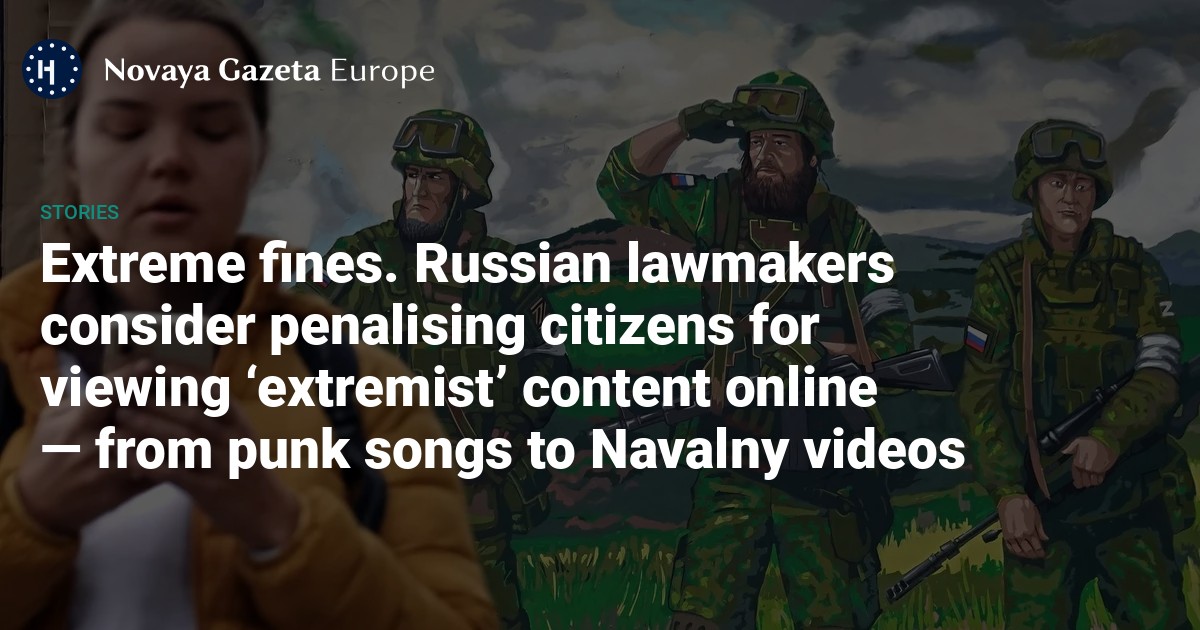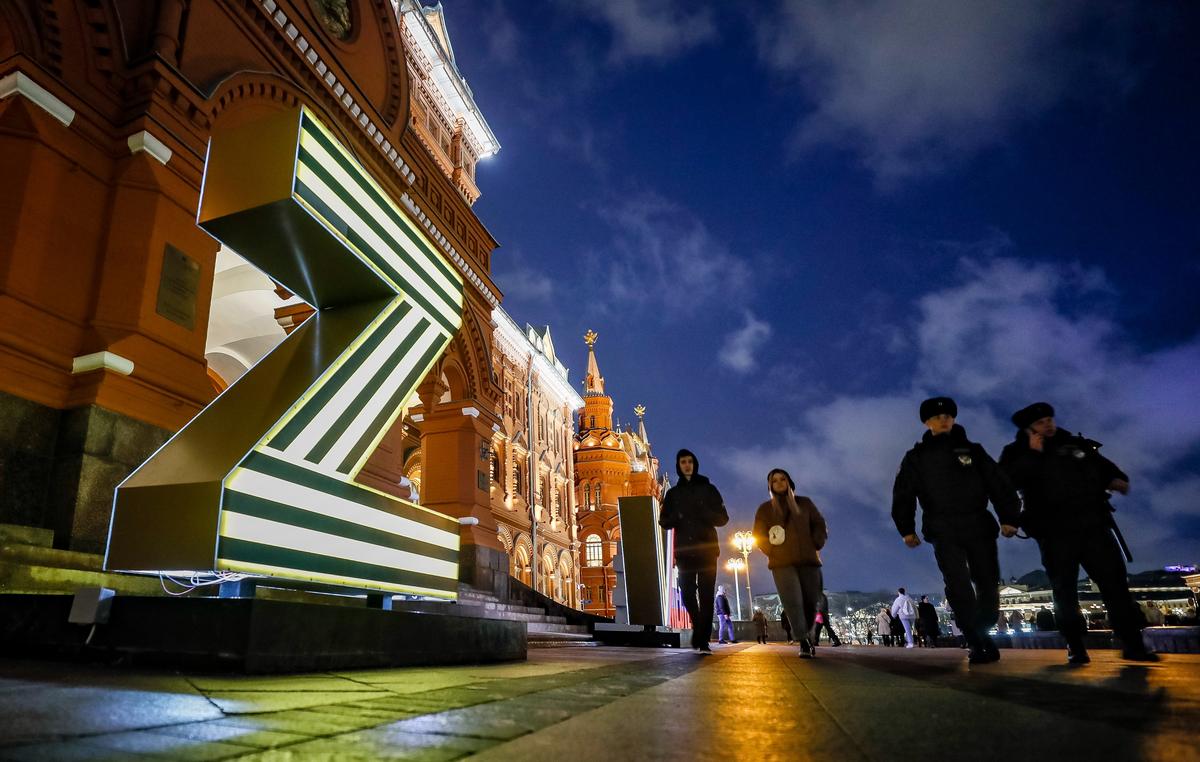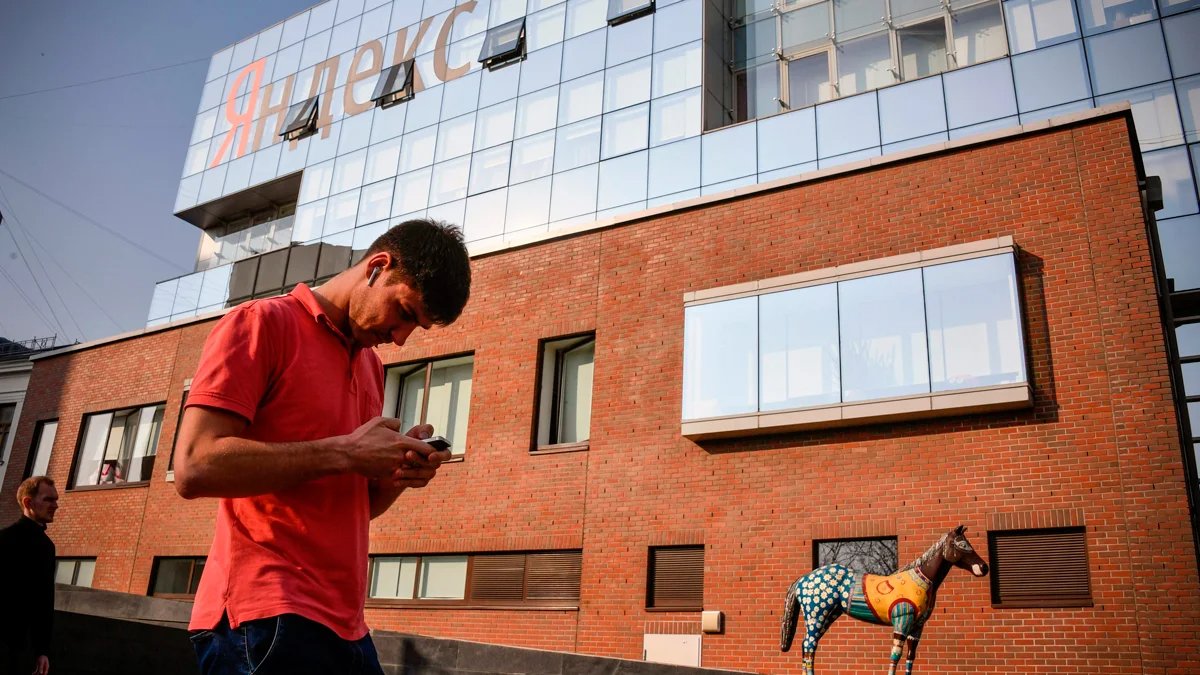



Russian lawmakers are considering a new bill seeking to fine anyone searching for “extremist” material online. Lawyers warn that the fines may apply to a wide array of content, with criticism of the authorities, LGBT-related posts and even some songs potentially being considered extremist.
Russia’s lower house of parliament, the State Duma, adopted the bill on its second reading on Thursday. Assuming the amendments are rubber-stamped by the Duma on their third reading and then by the Senate, this will mark the first time that there will be legal repercussions for anyone viewing prohibited content in Russia, with the changes due to come into force on 1 September.
Courts often consider any criticism of Interior Ministry and FSB employees or of lawmakers, servicemen and Vladimir Putin to be “extremism”.
The bill provides for fines of up to 5,000 rubles (€55) to be levied against individuals for accessing “extremist” materials, while those using VPN services to access blocked content will be subject to fines of up to 200,000 rubles (€2,200).
While the list of “extremist” materials and organisations is available at the Russian Justice Ministry’s website, the authorities probably won’t limit themselves to what’s on the list either when it comes to pressing charges, lawyers and human rights activists told Novaya Gazeta Europe.

Police officers walk past an illuminated letter Z installation in support of the Russian army near the Kremlin, Moscow, 25 March 2023. Photo: EPA/YURI KOCHETKOV
Lawyer Anastasia Burakova told Novaya Europe that the list of extremist materials and organisations includes opposition leader Alexey Navalny’s Anti-Corruption Foundation (FBK), Meta, which owns Instagram, WhatsApp and Facebook, and the non-existent LGBT “movement”, which the Russian Supreme Court outlawed in 2023.
The list also includes a number of songs and videos, including a song by Russian punk band Pornofilmy, songs by Russian rapper Oxxxymiron, and a 2011 video by Alexey Navalny calling United Russia “a party of crooks and thieves”, with over 5,500 items on the list in all. “The list is far from exhaustive, and, sadly, is being constantly updated,” Burakova notes.
The amendments have even drawn the ire of some pro-Kremlin figures, including RT chief and propagandist Margarita Simonyan.
The pre-existing law “On Countering Extremist Activity” has a much broader definition of “extremist material”, covering any “incitement to social discord” and the use of symbols of banned extremist organisations. A cybersecurity expert who spoke to Novaya Europe and preferred to remain anonymous, said that courts often consider any criticism of Interior Ministry and FSB employees or of lawmakers, servicemen and Vladimir Putin to be “extremism”.
Burakova says the authorities will theoretically be able to prosecute anyone searching for posts by LGBT activists and media material about LGBT people.
Yet despite the fact that Meta is recognised as extremist, senator Artyom Sheykin, a co-author of the bill, has assured Russians that they will not be fined for logging into Instagram or to blocked sites via a VPN. Accessing Meta resources “is not an administrative offence”, he insisted.

A man walks past the offices of Russian tech giant Yandex, Moscow. Photo: Alexander Nemenov / AFP / Scanpix / LETA
The fines will be issued by a court order for “intentionally searching for” and accessing materials that are included on the list of extremist materials, Sheykin added, though he could not say how the authorities would determine whether a person was looking for something “intentionally” or not.
Nevertheless, the amendments have even drawn the ire of some pro-Kremlin figures, including RT chief and propagandist Margarita Simonyan, who wondered how she would now be able to “investigate and shame” people and organisations who had been declared extremist, such as the FBK.
Russia appears to be following in the footsteps of Belarus, where people are routinely prosecuted for subscribing to opposition resources deemed “extremist”.
Digital rights organisation Net Freedoms Project said that under the new law, users’ search and history details could be handed to the authorities by search engine owners, telephone companies or any public company, such as subways, cafés or hotels, which offered free Wi-Fi access. Law enforcement officials will also be able to seize phones and find search and history data in Google accounts and YouTube, a cybersecurity expert told Novaya Europe.
By introducing such fines, Russia appears to be following in the footsteps of Belarus, where people are routinely prosecuted for subscribing to opposition resources deemed “extremist”, Burakova noted. However, she said the law was not designed to be enforced on a massive scale, as the Russian authorities don’t have the resources to track everyone’s internet activities.
But there are Russians who will be at increased risk nonetheless, Burakova continues. Activists being monitored by security forces, volunteers and employees at independent media, human rights organisations and civil society movements, anyone who appears in hacked opposition databases, and anyone whose gadgets fall into the hands of security forces when either being detained, searched or entering the country will all now face a new level of threat, she concludes.
The Russian government has banned independent media. We were forced to leave our country in order to keep doing our job, telling our readers about what is going on Russia, Ukraine and Europe.
We will continue fighting against warfare and dictatorship. We believe that freedom of speech is the most efficient antidote against tyranny. Support us financially to help us fight for peace and freedom.
By clicking the Support button, you agree to the processing of your personal data.
To cancel a regular donation, please write to [email protected]
VPNovaya
Help Russians and Belarusians Access the Truth
